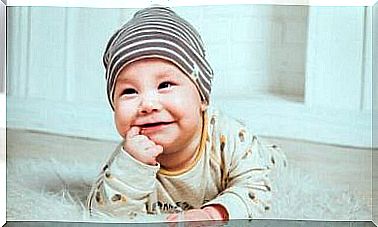Motherhood Makes You Stronger – Parenthood

Not long ago, a group of Asian researchers discovered that the growing baby’s cells travel to the mother’s brain, and regenerate it.
Being a mother makes you stronger. You do not believe it ? Read on, and you’ll find out why.
The brains of pregnant women are literally changing. Recent studies have shown that the gray matter of these women transforms in areas that are connected to empathy.
The mother’s neuronal connections would then optimize certain functions. For example, being able to interpret the mental state of their child, or anticipate possible threats in the environment. And the changes, which we do not perceive, even remain active for up to two years after childbirth.
Why does being a mother make you stronger?
Your senses are amplified
The senses are sharper, in order to lend greater vigilance to children. It seems to be due to the hormone prolactin. It’s the same with hearing: mothers tend to recognize their baby’s crying among all the other cries.
The visual capacity also increases, in order to protect the child from potential dangers. But the most important sense, which is the most amplified, is that of touch. The parts of the cerebral cortex dedicated to touch change during motherhood.
When a mother touches her baby and he touches her, she receives very subtle but very powerful information. This is information about her baby’s condition, how he is feeling, and how his relationship is going with her. It has an effect on the brain.

The ability to become multitasking
When giving birth to their babies, mothers face a multitude of new tasks at once. To ensure that the baby survives, the mother must know what the priorities are, and thus become more efficient.
It’s common to see moms cooking and chatting on the phone at the same time. Or who take advantage of times when the baby is asleep to do laundry, make beds, cook and clean.
Resistance: reducing stress levels
The hormones oxytocin and prolactin, which tend to be involved in infancy, especially when breastfeeding, help reduce stress.
The neurons responsible for the production of oxytocin really restructure themselves, during childbirth and the breastfeeding period.
Protection against cancer
Pregnancy and breastfeeding help a mother lower her risk of developing breast, ovarian or endometrial cancer.
This may be because pregnancy interrupts menstrual cycles. This reduces exposure to estrogen and progesterone, hormones that increase the risk of suffering from these terrible diseases.
You are stronger
Also thanks to the hormone prolactin, which works as a neurotransmitter in the brain, mothers are more courageous.
In nursing mothers, for example, the blood level can be up to eight times higher than normal.
It is as if motherhood is a powerful program of surpassing and asserting oneself.
Mothers are always ready to have conflicts to defend their children. This ability to fight can be observed thanks to the existence of associations of mothers against many social injustices.
An indestructible bond with your child

Long before birth, a strong bond is created between the mother and the baby that grows inside her womb.
For 9 months you have your baby in your womb. And there the baby hears your voice and feels your heartbeat. Just the fact of being born produces such a sudden synchronization of hormones, that the baby is able to crawl to his mother’s breast to feed. He is entirely guided by his instinct.
The connection is indisputable.
Greater emotional intelligence
During motherhood, a woman’s brain is in one of the most plastic moments of her life. That is to say, it is at a time of great neuronal development and development of connections between neurons.
Self-confidence
From now on, you have to be 100% confident in your abilities. So do it.
And the children will follow your example. Whatever they see in you, they will learn it.
From the limits you put on them, through eating habits and good manners. Play sports too, and go for a walk. All of these things are what you can leave as a legacy.
To be sure, a mother’s mind is not made to memorize or remember certain superfluous details, compared to all the things she knows to take good care of her baby. His brain is very busy. It has one goal of major importance: to raise a human being.









